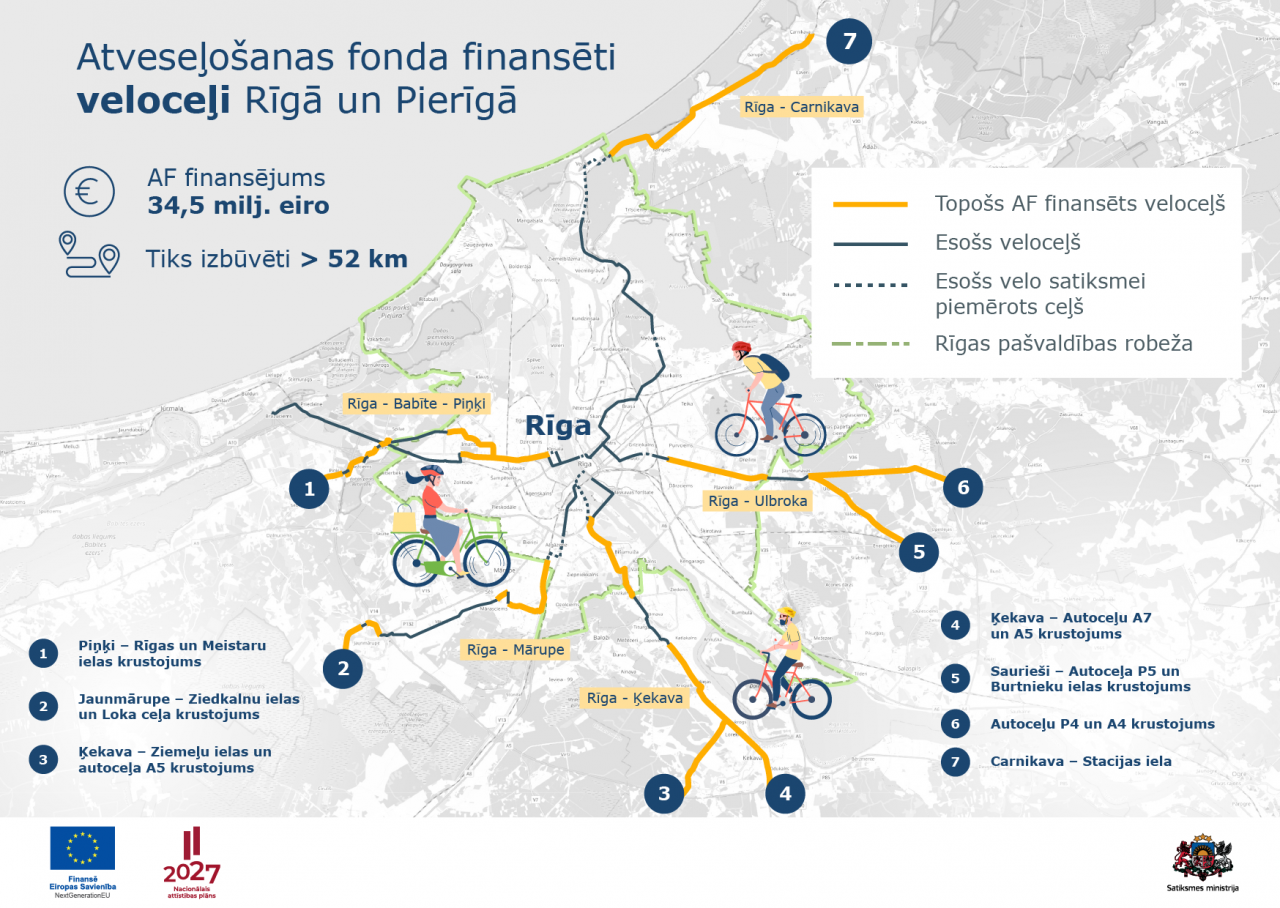In 2020, the European Union (EU) fund project implementers received payments worth more than 600 million euro, fulfilling the annual forecast by 112 percent, informs the Ministry of Finance (MoF) in the statement submitted to the Cabinet of Ministers (the Cabinet) on the current issues concerning EU fund investments.
Regardless of the challenges posed by COVID-19, active implementation of EU fund projects continued last year, and the EU fund payments to the project implementers remained at the level of the previous years. Project implementers received payments worth 601.1 million euro, fulfilling the annual forecast by 112 %. The largest investments in 2020 were made in the environmental protection and regional development, transportation, and education sector.
Overall, by 20 January 2021, project implementers received 2.4 billion euro or 55 % of the EU funding available in the programming period of 2014–2020. Whereas for verified project expenses, refund applications have been submitted to the European Commission (EC) for 2.3 billion euro already.
To reduce the impact of the crisis caused by COVID-19, the government made a set of decisions on the restructuring of the EU funding and additional state budget commitments in the framework of the EU fund action programme for the programming period of 2014-2020 (overall for more than 640 million euro). The majority of the investments are going to continue to be implemented in the next years - until the end of 2023. Overall, by 20 January 2021, project selections have been started or project contracts have been concluded (or existing contracts amended) for 133.6 million euro, and 9.6 million euro have been paid to support the education and retraining of the unemployed, in the social assistance sector, for adapting studies to the remote format, including for teachers, for improving international competition of entrepreneurs and for promoting local tourism. The majority of the investments are planned to be implemented until the end of 2023. The government or EC decisions are still required for 214.5 million euro (in the sector of transportation as well as education and research) on specific areas of investment and the conditions for their implementation. The Central Finance and Contracting Agency (CFLA) in cooperation with responsible authorities also continues providing individualised support and proactively assisting project implementers with finding the best possible solution for successful achievement of the investment aims and objectives co-funded from the EU funds.
The Ministry of Finance also continues preparations for the beginning of the new EU fund programming period for 2021-2027. The approval of the action programme and further implementation schedule largely depend on the approval of the binding EC regulations. At the same time, the MoF has designed national horizontal legislation projects to be duly promoted in accordance with the indicative time schedule. To identify the investment areas where investments would need to be commenced in 2021 already, the MoF has invited the ministries to submit their plans and justified investment needs eligible to accelerated funding for further discussion and submission of specific proposals to the government.
It is equally important to the ministers as policy makers to ensure the fulfilment of the requirements defined by the EC both regarding accelerated investments, as well as not delaying the beginning of investments after the approval of the regulation, to prevent delay of investments due to the sectoral policy planning documents (expenses cannot be declared to the EC until all the investment requirements binding upon the corresponding support objective are fulfilled).
At the meeting of the European Affairs Committee on 5 February 2021 where the MoF informed about the current issues concerning the programming period of 2021-2027, including yet undesigned, unapproved policy planning documents in specific sectors, the deputies emphasised the importance of sectoral planning documents to be able to begin timely investments. MoF plans to raise this question in the government by submitting the semi-annual information statement by 1 March 2021. More information about the EU fund implementation process in the programming period of 2014-2020 and the current issues concerning the beginning of the programming period of 2021-2027 is available in the MoF presentation for the meeting of the European Affairs Committee on 5 February 2021 (in Latvian) .
The report on the EU fund investment progress (in Latvian) until January 2021 is available on the EU fund website.
